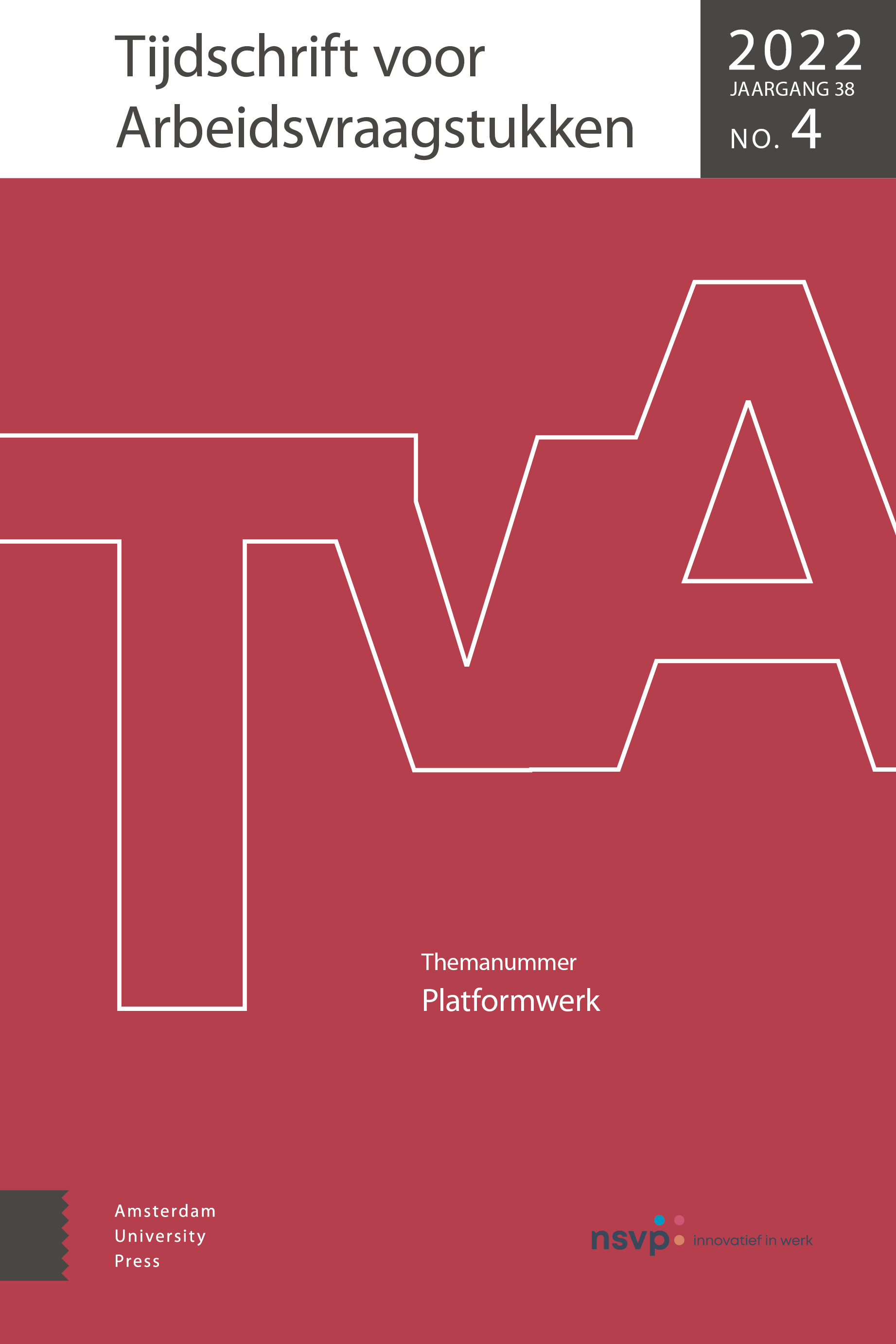-
oa Nieuwe vormen van sociale mobiliteit of een reproductie van ongelijkheden?
Reflecties op migratie, gender, ras/etniciteit en klasse in het betaald huishoudelijk werk in de platformeconomie
- Amsterdam University Press
- Source: Tijdschrift voor Arbeidsvraagstukken, Volume 38, Issue 4, Dec 2022, p. 497 - 516
-
- 01 Dec 2022
Abstract
Betaald huishoudelijk werk is volgens velen de hardst groeiende sector in de platformeconomie in geïndustrialiseerde landen. Werk in de platformeconomie wordt echter vaak slecht betaald en kent een groot gebrek aan rechtsbescherming en baanzekerheid. Tegelijkertijd bieden platformen aan gemarginaliseerde groepen op de arbeidsmarkt, zoals ongeschoolden, geracialiseerde minderheden, migranten en personen die zorg voor het gezin combineren met werk (vaak vrouwen), juist ook nieuwe mogelijkheden voor werk en inkomen. Dit werpt de vraag op die centraal staat in deze bijdrage: in hoeverre weten platformen ongelijkheden op basis van gender, ras/etniciteit, klasse en migratiestatus te reproduceren, te transformeren of tegen te gaan? Reflecterend op empirische studies uitgevoerd naar betaald huishoudelijk werk in de platformeconomie in de VS, Zuid-Afrika en noordse landen, stelt deze bijdrage bescheiden voor dat huishoudelijk werk in de platformeconomie ondergewaardeerd is – net zoals de sector van oudsher werd ondergewaardeerd – en gekenmerkt wordt door sociale ongelijkheid tussen werkers en klanten. Het is echter essentieel dat ervoor gewaakt wordt dat platformen ongelijkheden niet verder vergroten door verdergaande controle op werkers door het gebruik van weinig transparante en discriminerende algoritmes in het mediëren van vraag en aanbod.


